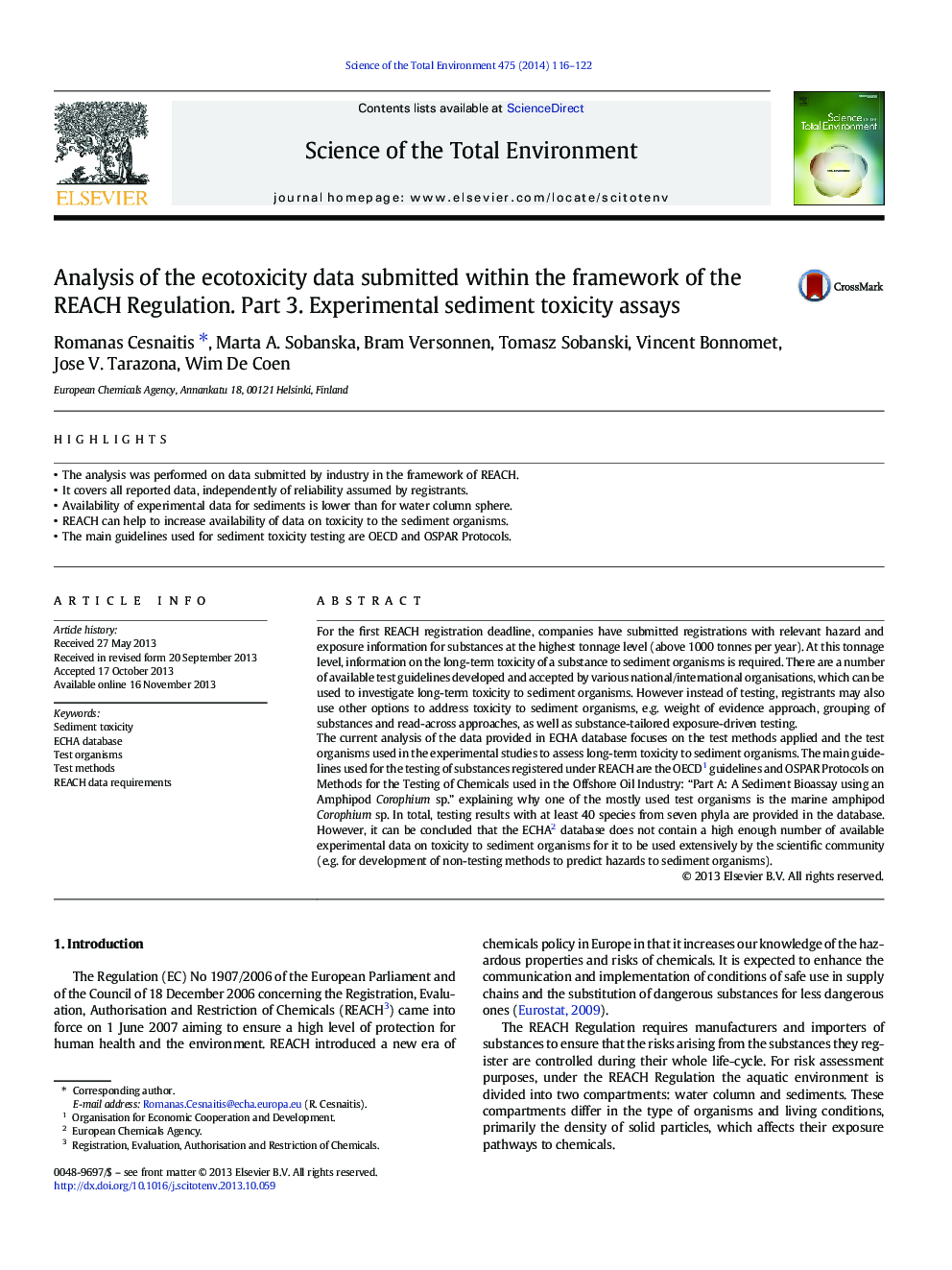| Article ID | Journal | Published Year | Pages | File Type |
|---|---|---|---|---|
| 6331551 | Science of The Total Environment | 2014 | 7 Pages |
Abstract
The current analysis of the data provided in ECHA database focuses on the test methods applied and the test organisms used in the experimental studies to assess long-term toxicity to sediment organisms. The main guidelines used for the testing of substances registered under REACH are the OECD1 guidelines and OSPAR Protocols on Methods for the Testing of Chemicals used in the Offshore Oil Industry: “Part A: A Sediment Bioassay using an Amphipod Corophium sp.” explaining why one of the mostly used test organisms is the marine amphipod Corophium sp. In total, testing results with at least 40 species from seven phyla are provided in the database. However, it can be concluded that the ECHA2 database does not contain a high enough number of available experimental data on toxicity to sediment organisms for it to be used extensively by the scientific community (e.g. for development of non-testing methods to predict hazards to sediment organisms).
Related Topics
Life Sciences
Environmental Science
Environmental Chemistry
Authors
Romanas Cesnaitis, Marta A. Sobanska, Bram Versonnen, Tomasz Sobanski, Vincent Bonnomet, Jose V. Tarazona, Wim De Coen,
